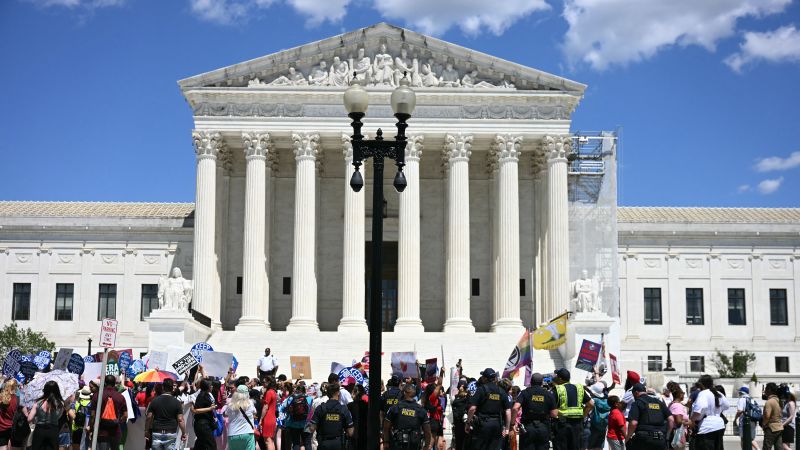A document that was mistakenly posted on the US Supreme Court website Wednesday revealed that the court may allow abortions in medical emergencies in Idaho, at least temporarily. The state would not be permitted to deny an emergency abortion to a pregnant person whose health is in danger, at least until the case is resolved. The posting was first reported by Bloomberg News. The details of the final version that the court will issue in the coming days remain unclear.
Justice Ketanji Brown Jackson expressed in a separate opinion Wednesday, as reported by Bloomberg, “Today’s decision is not a victory for pregnant patients in Idaho. It is a delay.” This ruling comes as a response to Idaho’s strict ban on abortions in most circumstances, which does not allow a doctor to perform an abortion if the patient’s health is at risk from the pregnancy itself. The Biden administration argues that this law violates the federal Emergency Medical Treatment and Active Labor Act (EMTALA).
EMTALA, enacted in 1986, requires hospitals that have received Medicare funding to screen everyone who enters their emergency rooms for emergency medical conditions, without considering their ability to pay. The law mandates hospitals to stabilize anyone with an emergency medical condition and to provide treatment until the condition is resolved or stabilized. Pregnant individuals were specifically included in the law in 1989 to prevent hospitals from refusing care to uninsured women in labor.
In July 2022, the Biden administration clarified that EMTALA includes the need to perform stabilization abortion care if it is medically necessary to treat an emergency medical condition. Despite this development, Molly Meegan, chief legal officer for the American College of Obstetricians and Gynecologists (ACOG), stated, “It doesn’t solve the problem at all.” Meegan emphasized that pregnant patients are still facing challenges in accessing care, and physicians are struggling to provide care under restrictive laws.
Idaho’s abortion law had a significant impact on hospitals in the state, with St. Luke’s, the largest provider of emergency services, having to send multiple pregnant patients out of state for care due to the restrictions. Dr. Kara Cadwallader, a member of the Idaho Coalition for Safe Healthcare, expressed her optimism about the recent court ruling, highlighting the importance of pregnant patients being able to access emergency care in Idaho.
Amy Hagstrom Miller, founder and CEO of Whole Woman’s Health, emphasized that abortion is a necessary part of healthcare, especially in emergency situations. With many states having restrictive abortion laws, providers are uncertain about their ability to offer necessary care. Considering the recent challenges in the wake of the Dobbs decision, Hagstrom Miller underscored the importance of ensuring access to healthcare, including abortion care.
Despite the ruling’s potential impact on Idaho, advocates stress that the issue extends beyond one state. Law professor Elizabeth Sepper noted the confusion surrounding abortion laws in other states, emphasizing the need for clarity and broad access to emergency care. Alexa Kolbi-Molinas, deputy director of the ACLU’s Reproductive Freedom Project, criticized the ruling for failing to uphold the basic right to emergency care for pregnant individuals.
In conclusion, the Supreme Court’s inadvertent posting sheds light on the ongoing legal battles surrounding abortion access, particularly in emergency situations. The outcome of this case will have far-reaching implications for pregnant individuals across the country, as healthcare providers navigate complex laws and regulations to ensure access to necessary care.












